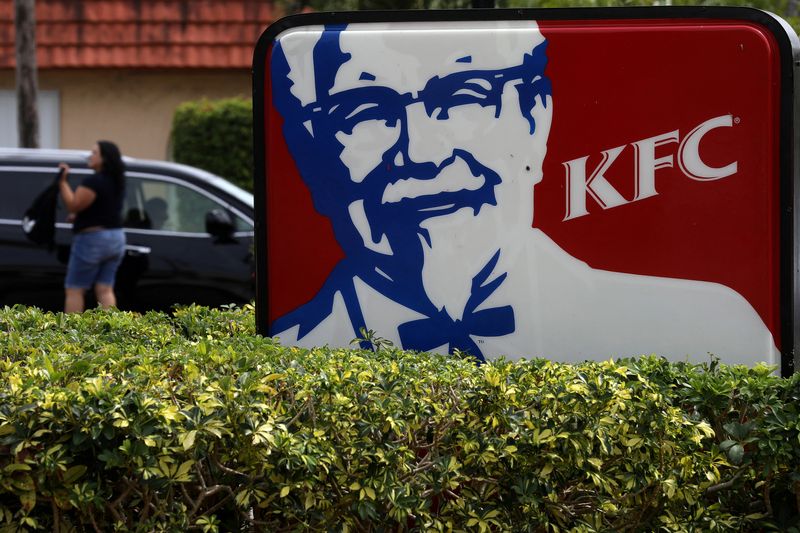By Deborah Mary Sophia
(Reuters) -Yum Brands' quarterly sales missed Wall Street estimates on Wednesday, with weaker growth across its top chains, as fewer customers ordered at Taco Bell, KFC and Pizza Hut amid a choppy spending environment in the United States.
It also joined rivals McDonald's (NYSE:MCD) and Starbucks (NASDAQ:SBUX) in taking a sales hit from the Israel-Hamas war.
The company flagged a "low single-digit headwind" to fourth-quarter sales from the conflict that dented business in the Middle East and other markets like Malaysia and Indonesia.
The impact had continued into the current quarter, but it should moderate as 2024 progresses, Yum said.
The Middle East, Turkey and North African markets make up about 6% of KFC's system-wide sales, while Middle East and Africa account for 5% of those at Pizza Hut.
Meanwhile in the United States, inflation-weary consumers — particularly low-income households that frequent fast-food chains like KFC and McDonald's — have been cutting costs, including by switching to home-cooked meals.
Placer.ai data showed traffic declined across Yum's brands, including at Taco Bell which has long been viewed as the "crown jewel" of the portfolio.
"For a lot of these fast-food players, what used to be $4, $5 or $6 meal has become a $10, $12, $13 meal over the past few years ... And people are starting to question that," said Edward Jones analyst Brian Yarbrough.
Yum has planned initiatives to revive sales, CEO David Gibbs said on an earnings call, including the launch of KFC's first-ever loyalty program in the first quarter, and limited-time offers like hot honey pizza and wings at Pizza Hut.
Taco Bell is planning to roll out at least one new product every five weeks this year to draw more customers.

Shares rose more than 2% in early trading after Yum said it would still deliver on its long-term targets in 2024, including core operating profit growth of at least 8%, despite challenges across markets.
Yum Brands' total same-store sales rose 1% in the fourth quarter, missing LSEG estimates for a 3.9% increase.
